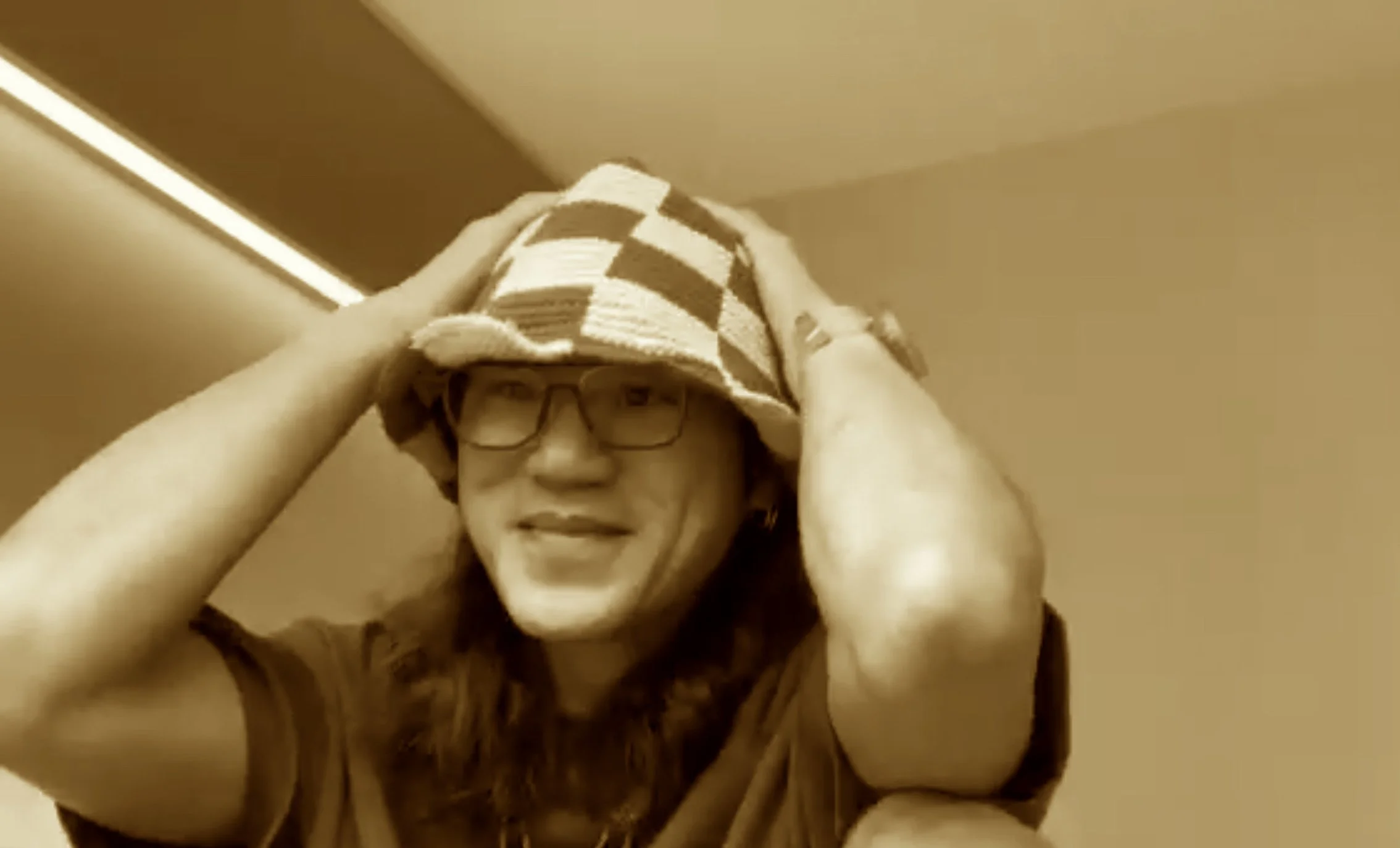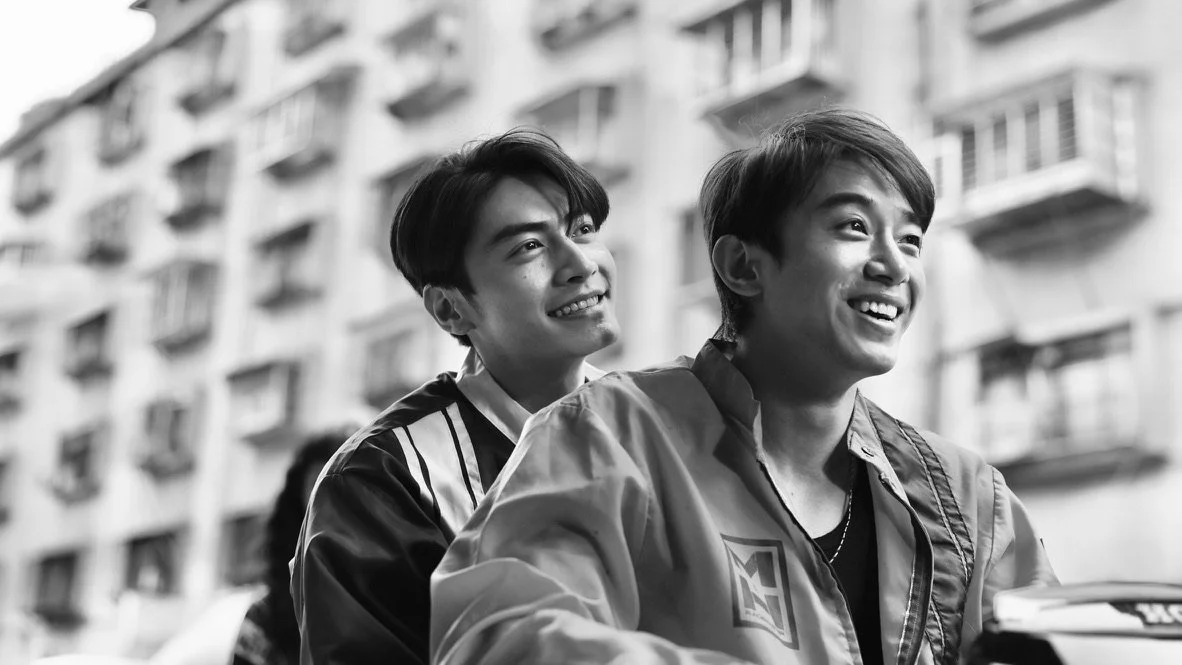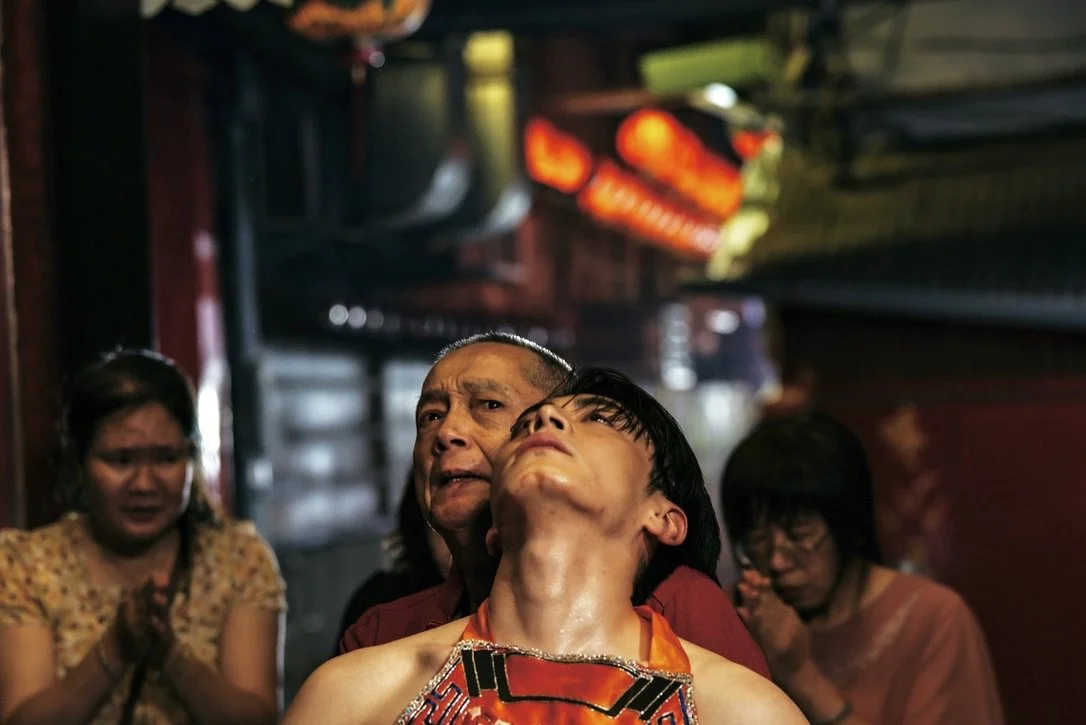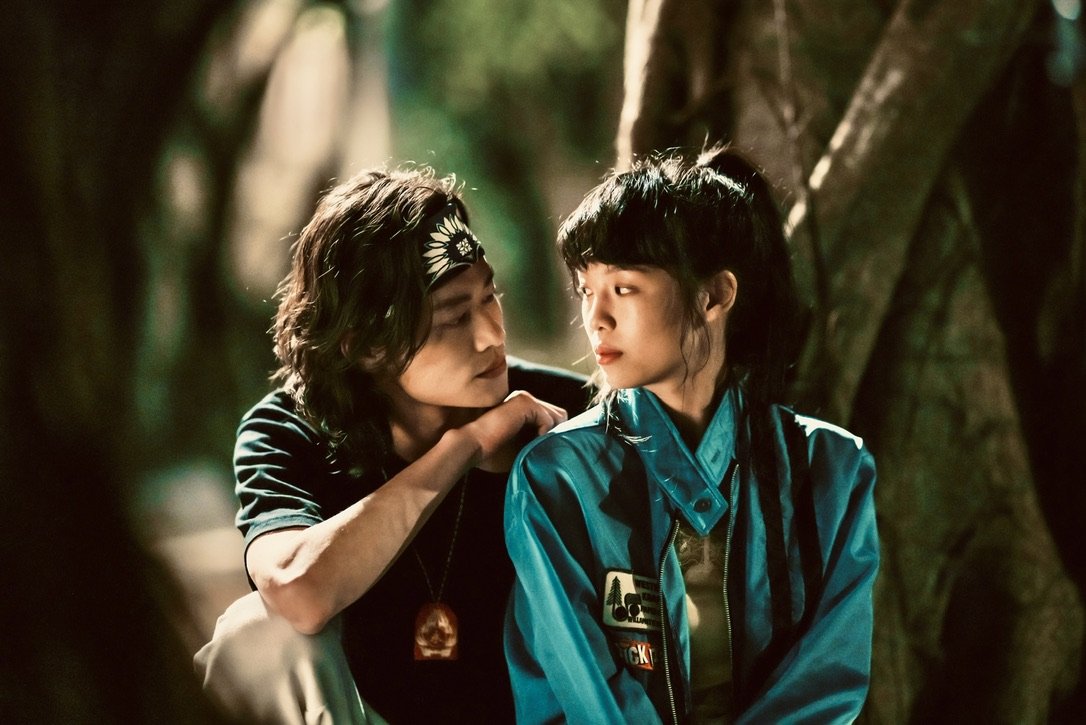Time for Love
Taiwanese Director Leading Li has heaps to say about time, faith, family and the nature of love in his HKLGFF opener.
Filmmaker Leading Li Ding has plenty to say. Speaking via Zoom the day after his latest feature, The Time of Huan Nan | 環南時候, opened the 35th Hong Kong Lesbian & Gay Film Festival the simplest of questions leads to long, thoughtful, but never rambling contemplations of how different audiences perceive the core relationship between Chang An-jian and Chen Bao-ding, the genesis of his big genre swing and how his friends have left him behind. Okay “left behind” is a strong phrase, but there’s logic to it – particularly in light of Huan Nan’s sci-fi twist. More in a bit.
After opening in Taiwan in May, Huan Nan rustled up an invite to the New York Asian Film Festival in July, and was picked up by global art house streamer MUBI before landing at the HKLGFF. The film starts in 2022, with Miss Shampoo’s Hsia Teng-hung as Chen Yao-hua getting struck by lightning and thrown back in time to 1991, where he gets a chance to meet his father as a young man. To say the time travel device is unexpected is an understatement, but somehow it works. Li made his first feature in 2008, My So-Called Love (starring Eddie Peng in one of his earliest lead roles), followed by Anywhere Somewhere Nowhere (2014) and The Silence of Om (2018) – none of which hinted at the more ambitious storytelling Huan Nan would aim for. The film is a romantic melodrama, complete with grandiose final act gestures, with currents touching on identity and authenticity, autonomy and family, and faith flowing just beneath the surface. All centred on an historic Taipei landmark.
The Time of Huan Nan didn’t start life as an epic LGBTQ+ romance. Li and co-writers Tyler Zhou Ke-wei, Ho Shing-ming and Tan Yee-hui found the film’s roots in a story about the economically critical Huan Nan market in Taipei’s Wanhua District. Targeted for redevelopment back in 2016, the original building was one of Taipei’s last remaining examples of traditional market architecture, and Li (among other artists) was looking for a way to memorialise it. Video and digital art were both floated as media, before a film finally reared its head. “I met with people in the market, and when they learnt I was making a film they told me I shouldn’t bother with them,” begins Li. “‘No one will go see people working in the market. Your film won’t sell.’ They suggested a film about the LGBTQ community, about people who were also discriminated against. ‘Gay stories are popular nowadays, so you should make a film that will sell.’ I was very surprised,” Li admits with a grin and a shrug. Everyone’s a producer.
It sounds mercenary but many of the themes and ideas that emerged as Li and Co. sifted through their research overlapped, so they forged ahead – and those themes presented a practical reason for the timey-wimey stuff. “Real life stories that I’ve heard from people over the past three years are all through the film. The time travel plot was a technique we decided to use to protect these real people. I was shocked by some of what they told me.”
The story that came out of Li’s interviews pivots, essentially, on three generations of Chen men. In 2022 Taipei, Chen Yao-hua (Hsia) is working for his family at its Huan Nan stall, in part because his father Chen Bao-ding (Shan Cheng-ju) isn’t as mentally acute as he could be. While trying to talk his dad down off a roof one night, he gets Back to the Futured to 1991, where a trio of pals, really a found family, think he’s missing teenager Liu Youn-huei. He goes along with the ruse and meets Bao-ding as a young man (Edison Song Bai-wei, My Best Friend’s Breakfast), as well as his buddies An-jian (Chu Meng-hsuan) and the only girl in the gang, Yu Kang-min (Wang Yu-ping). Bao-ding and An-jian are flirting with romance, but because Kang-min is there that means “love triangle”. Bao-ding’s religious father, Yao-hua’s grandfather, runs a temple in the area and he’s intensely uncool at the suggestion Bao-ding is gay. Bao-ding wrestles with living an honest life. Yao-hua doesn’t give a damn about his dad being gay. The Chens generational plot was lifted from a story Li heard from a market butcher about an elderly former market resident, now suffering dementia but who effectively came out while in a retirement home.
“He couldn’t let people know he was gay, so he had been pretending to be another person his whole life,” Li recalls. “But then in the retirement home, every day at 5pm he would play a song that allowed him to be himself. I used that for the last scene in the film. The body remembers; his body kept his memories, even though he’d already forgotten so much,” continues Li on the origins of the character and the film’s love story. Because apart from that, Huan Nan wades into spiritual-philosophical territory. “The people there have a very close relationship with God, because temples are everywhere,” notes Li. “We want to talk about what’s happened in the past. It’s very important to reflect on where we came from, and we chose a temple location because we wanted to deal with the influence of God on family, and on society. Did the judgement happen before God? Was God protecting the father for beating his son? Can we discuss these things now, before God, free of more judgement?”
Huan Nan also toys with concepts of fate and free will – remember, time travel – and in doing so dips into melodrama in the back half of the film when the ’22 version of Youn-huei/Yao-hua re-encounters Kang-min and he finds out what happened in the intervening years. Li claims recognition and acceptance of LGBTQ communities from the general population in Taiwan hovers around 80%, but it’s been a process. In Taiwan, 1991 was an important year, a time when things were opening up and societal attitudes were shifting, and so it was a good starting point for exploring that shift and making the larger point. Some things just are, and time travelling won’t change them – for better or for worse.
So the time travel makes sense considering Li was looking for a way to reflect and interact with the past. But on top of that he wanted to prove that on a fundamental level the generational divide wasn’t as gaping as most of us think it is.
“So I’m 55 now. I’m single. Most of my friends are married with kids, and they’re always telling me how the kids are their best friends. I’m like, ‘No, you bullshit. You can’t be friends with your kids.’ But they insist. So I wanted to explore intergenerational friendship, to explore this thing that I don’t understand in my daily life, and time travel was a good way to do that too,” says Li. Song and Hsia have some of the film’s best moments, with Yao-hua providing Bao-ding with the kind of support he’d never get otherwise in ’91 and signalling change on the horizon. Because despite some of its plot points, Huan Nan is an optimistic film with a fairly happy ending.
And if it sounds like there’s a lot going on in The Time of Huan Nan it’s because there is, though it’s still first and foremost it’s a love story. And audiences want to see Song and Chu face down their obstacles and find happiness. Which doesn’t mean those audiences are taking the same things away from it. “Audiences from mainland China, local Hong Kong audiences and expats and foreigners in Hong Kong are pretty different in their reactions to the story,” Li finishes, gesturing around and obviously reflecting on past screenings. “The differences are mainly on the understanding of what homosexuality is, and also the desire of being in a family. After the Q&As people realised that these guys are less complicated than what they imagined.” Chinese audiences wanted the heightened emotions they can’t express in daily life, whereas Westerners were more attuned to little gestures and subtleties of emotion. No surprise, Hongkongers were the pragmatists. “They asked why someone is reacting like this or that? Why’s he doing that? Why is he being so immature? Is he in secondary school? Hong Kong high school guys are not like that,” he says with a chuckle. “So I would ask, But did you like it? And the answer is always ‘Yes!’ That’s good enough for me.” — DEK





